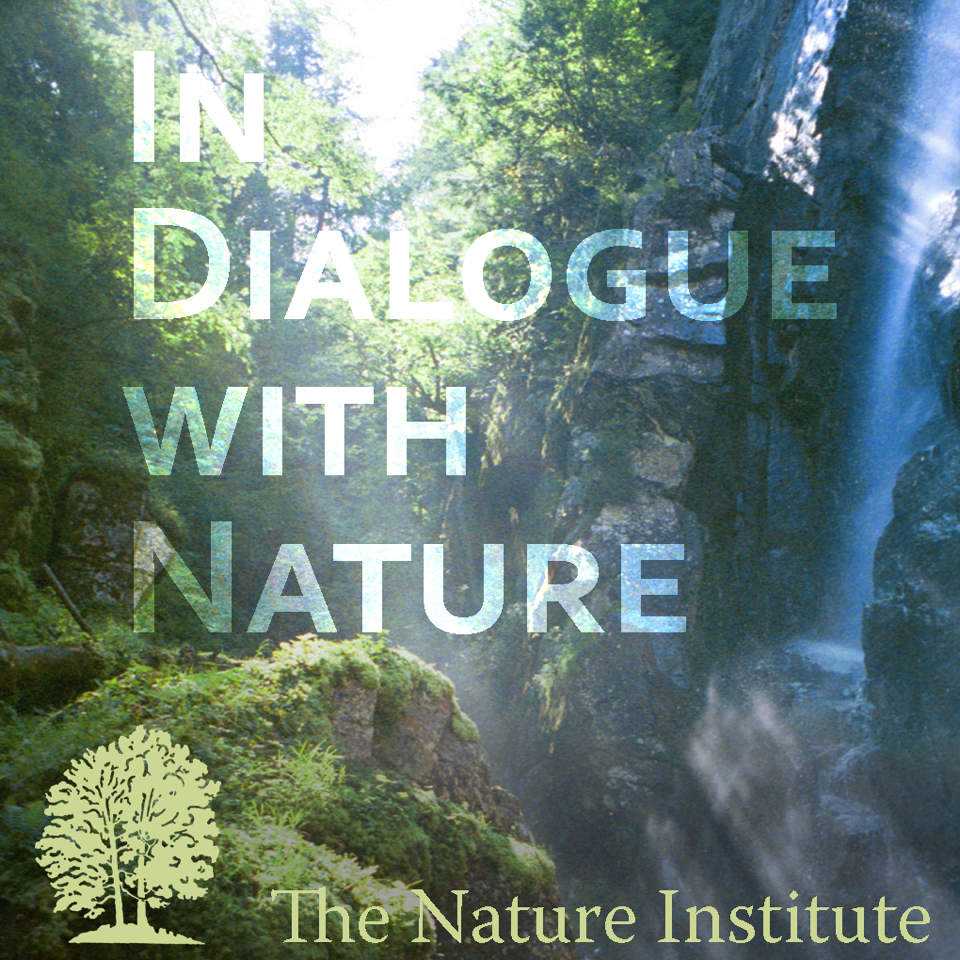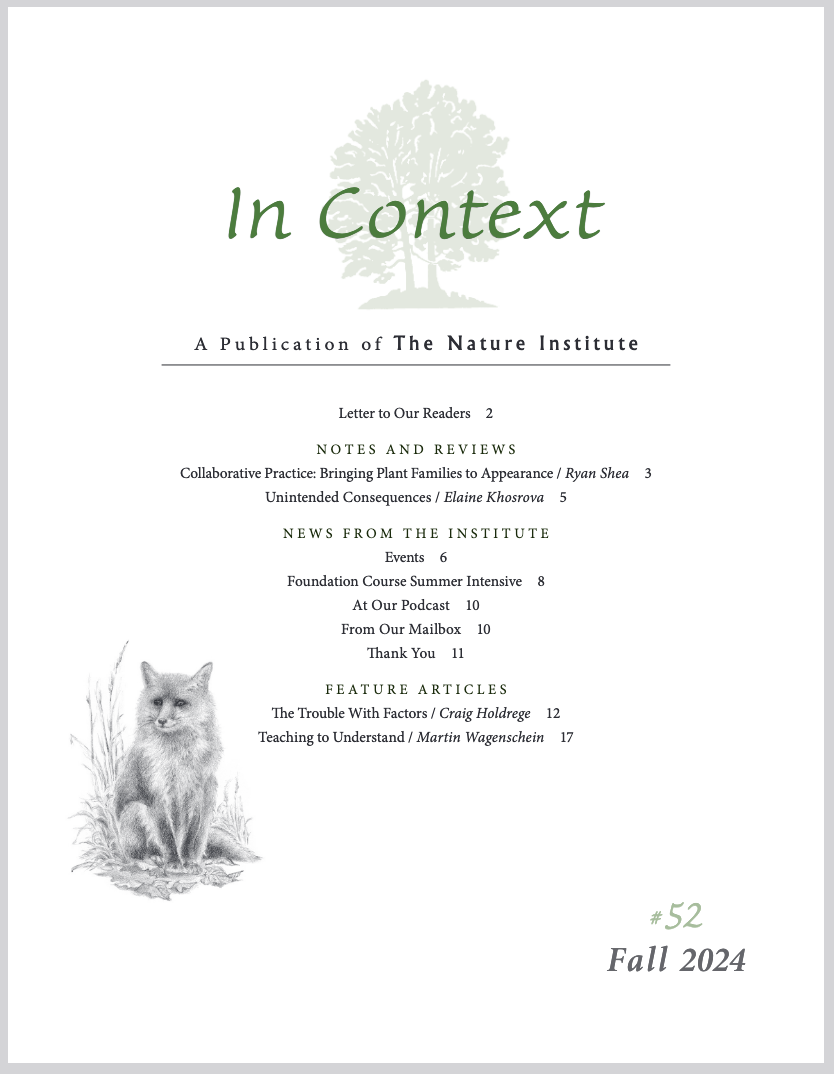“The question is not what you look at, but how you look and whether you see.”
— HENRY DAVID THOREAU
To learn more about skunk cabbage and its remarkable characteristics, read this portrayal.
“The Qualities of the Earth Element and Those of the Water Element”
An Interactive Evening Workshop with Henrike Holdrege
Wednesday, April 2, 7:00 - 8:30 pm
When the Greeks spoke about earth and water, they thought of all that is solid and all that is fluid. In this workshop we will explore the characteristics of being solid and of being fluid in a variety of ways. These qualities are central to life on Earth.
No registration necessary. Donations are welcome. Out of the Work of The Nature Institute runs every other Wednesday, March 5 - May 14. You can find the schedule and topics here.
This workshop is part of our Wednesday evening series of lectures and workshops, Out of the Work of The Nature Institute. For more on upcoming evenings and other offerings, visit our events page, here.
Latest Publications
Podcast Episode: “In Praise of Slowness: What Does It Mean to Be a Sloth?”
When Craig and Henrike Holdrege visited the Amazon in 2015, they had the rare opportunity to observe the most prevalent (yet notoriously hidden) tree-dwelling mammal in Central and South American rainforests: the three-toed sloth. Craig wove first-hand observations into the detailed portrait of the sloth that comprises the first chapter of his book, Seeing the Animal Whole—And Why It Matters. Now you can listen to this fascinating portrait, “In Praise of Slowness: What Does It Mean to Be a Sloth?”, in the latest episode at our podcast, In Dialogue With Nature.
More than a careful description of the sloth, the text also helps us imagine how all the characteristics of an animal express a coherence. “Every detail can begin to speak ‘sloth,’ not as a name,” Craig writes, “but as a qualitative concept to which no definition can do justice.” We invite you to listen . . . slowly.
In Context: Fall 2024 Issue
The fall 2024 issue (#52) of our biannual publication, In Context, is available in print and online. New writings include a feature by Craig Holdrege on the implications of factor-based thinking in science. An article from our archives, by Martin Wagenschein, makes the case for learning a subject through an exemplary study rather than by a broad survey. You’ll also find a photo collage of activities with our summer Foundation Course participants in our News section, and a report on collaborative Goethean practice by Ryan Shea.
Featured Article
Sympoiesis: From Thinking About to Being With
Separate entities can either compete or develop strategies to cooperate. In either case, the starting point is separation. This is a foundational assumption of modern biology. But what if relatedness is more fundamental? How would we behold living beings and what we call their environment? A consideration of oak trees guides this exploration of sympoiesis — creating together.
News From The Institute
Read here about recent staff activities at the institute as well as abroad. You can find field notes from our Foundation Course 2024 summer intensive and more, including a Fall Colors art/observation workshop; talks introducing Goethean Phenomenology to students and professional philosophers; and workshops for bringing Goethean practice into the classroom.
Our online Bookstore offers titles from our faculty and other Goethean authors whose work we value. We encourage you to browse or contact us with any questions.
Other Research and Resources
In addition to publishing our staff’s work relating to Goethean Science and Phenomenology on this site, we also periodically showcase the work of others in the field. A new such addition to our Writings By Author section is the work of Mark Riegner PhD, who taught Ecology and Evolution for 35 years at Prescott College in Arizona, and has authored four insightful articles that you can link to from here.
About the work of The Nature Institute — In a rare interview, recorded in Brazil, Henrike and Craig Holdrege speak of their transformative work and the Goethean perspective that has long inspired it. This Q & A followed a two-week course, “Seeing Nature Whole,” that the Holdrege’s have frequently taught each December in Florianópolis.
From a Reader…
Dear Craig,
Once again I’m introducing papers from The Nature Institute website, this time for a HS botany course, and I’m just so grateful for your work (and Steve’s) and that a resource like yours exists. …I appreciate so much those who approach science thoughtfully, with open minds and hearts. It has lit a fire in several students over the years, and helped to humanize even those who are not especially otherwise interested in science.
- Executive Director, Waldorf High School









